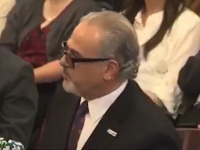Tunisia recorded zero new coronavirus cases for the first time since early March, health authorities said on Monday, as the government will further relax restrictions on movement and businesses.
Tunisia reported its first case on March 2. It has confirmed 1,032 cases in all and 45 deaths.
The country, which has about 500 intensive care beds, said 745 patients recovered and only 11 were still in hospital.
Tunisia started relaxing its coronavirus lockdown last week, reopening parts of the food, construction and transport sectors and allowing half of government employees to return to work.
Shopping centers, clothing shops and hairdressers will open on Monday, with more indications that Tunisia is close to controlling the pandemic.
Tunisia said the country’s economy will shrink by up to 4.3 percent, the steepest drop since independence in 1956. The key tourism sector could lose $1.4 billion and 400,000 jobs this year due to the coronavirus pandemic.
A Tunisian NGO has set up a food bank that dispenses aid by text message to some 300 needy families rendered more vulnerable because of the health crisis.
The initiative, which had been long in the making, was finally launched at the end of April to coincide with the start of the holy Muslim fasting month of Ramadan.
It targets families who have lost jobs because of the lockdown, like that of Messaouda Raouafi, a cleaning woman forced to stay indoors.
"Because of Ramadan and the lockdown I can no longer go out to work," said the 49-year-old.
"I cannot clean homes and earn money to feed my seven children."
Her family was among the 300 chosen by the women's affairs ministry and signaled to the NGO known as the "Banque Alimentaire Durable" or Sustainable Food Bank.
Under the initiative, Raouafi receives a code by text message allowing her to spend 40 to 60 Tunisian dinars (around $21-32) weekly at specially designated grocery stores.
With that money, Raouafi has been able to buy basic goods such as oil, milk, coffee and flour.
This article has been adapted from its original source.








